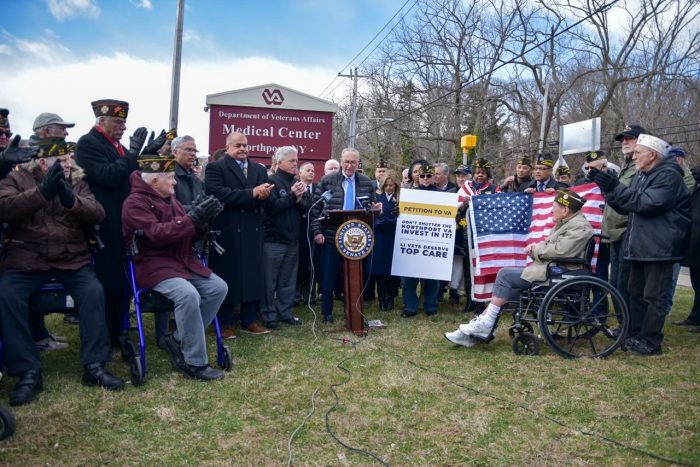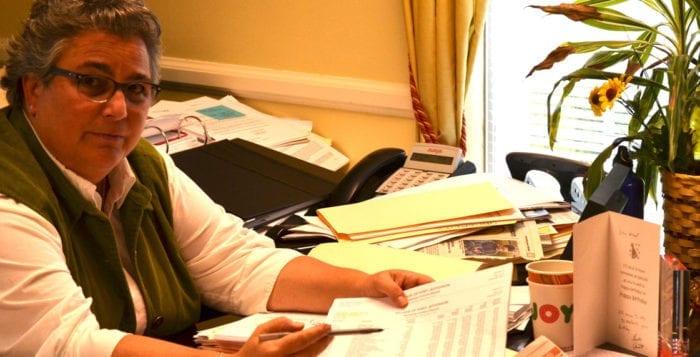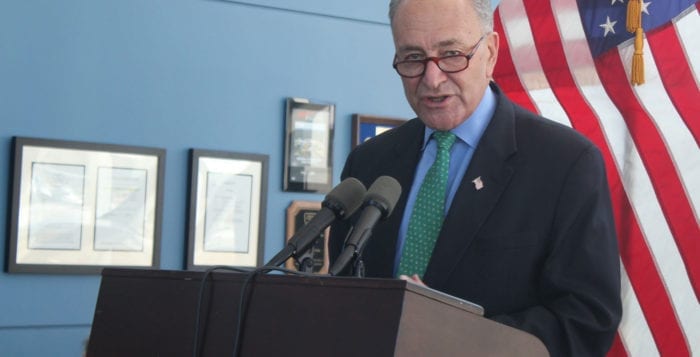After the release of a recent report from the U.S. Department of Veterans Affairs recommending the slashing of services at veterans hospitals, including Northport VA Medical Center, local elected officials have demonstrated exemplary behavior to ensure our veterans are properly cared for.
Among the recommendations in the report are the downsizing and reorganizing of the Northport location, which will transition into a subacute care facility. Inpatient medical and surgical procedures will be moved from Northport to Stony Brook University Hospital and NYU Langone Hospital in Mineola. Services that are offered now in Northport will be provided by St. Albans VA Medical Center in Queens and its community partners.
The VA has cited the changing needs of local veterans and millions of dollars of repairs needed for the Northport VA as their reasons.
Senate Majority Leader Chuck Schumer (D-NY) is taking action, unveiling an advocacy plan with the hopes of defeating these recommendations. His first call of action is to circulate a petition across the Island. In a press release, the senator said he would present the signatures in a personal meeting to those who proposed the Northport reductions, also including closing two New York City VA hospitals. He will ask local hospital officials to express concerns about treating veteran-specific conditions and will then take the matter to the VA.
Schumer said he will bring the matter to President Joe Biden (D) if necessary.
In a press release, U.S. Rep. Lee Zeldin (R-NY1) said that he will work with the Long Island veterans community to figure out the “best path forward.” U. S. Rep. Tom Suozzi (D-NY3) also criticized the report, saying that elected officials were not consulted on the recommendations.
The report has evoked bipartisan support for the VA hospital and rightfully so. Our veterans have given up so much to protect their fellow citizens. When they enlisted, they risked their safety and sometimes their lives to guarantee the rights of all Americans. Thanks to our vets, we can criticize the government, assemble freely, and enjoy the rights and freedoms guaranteed by the Constitution.
Through their words, Americans often thank our veterans for their service. Now is the time to thank them through action. Residents should call the offices of their U.S. senators and representatives and demand that they join the fight to keep veterans health services as local and accessible as possible.
Veterans-specific care needs to be expanded, not slashed. Thank a veteran today by taking action.











